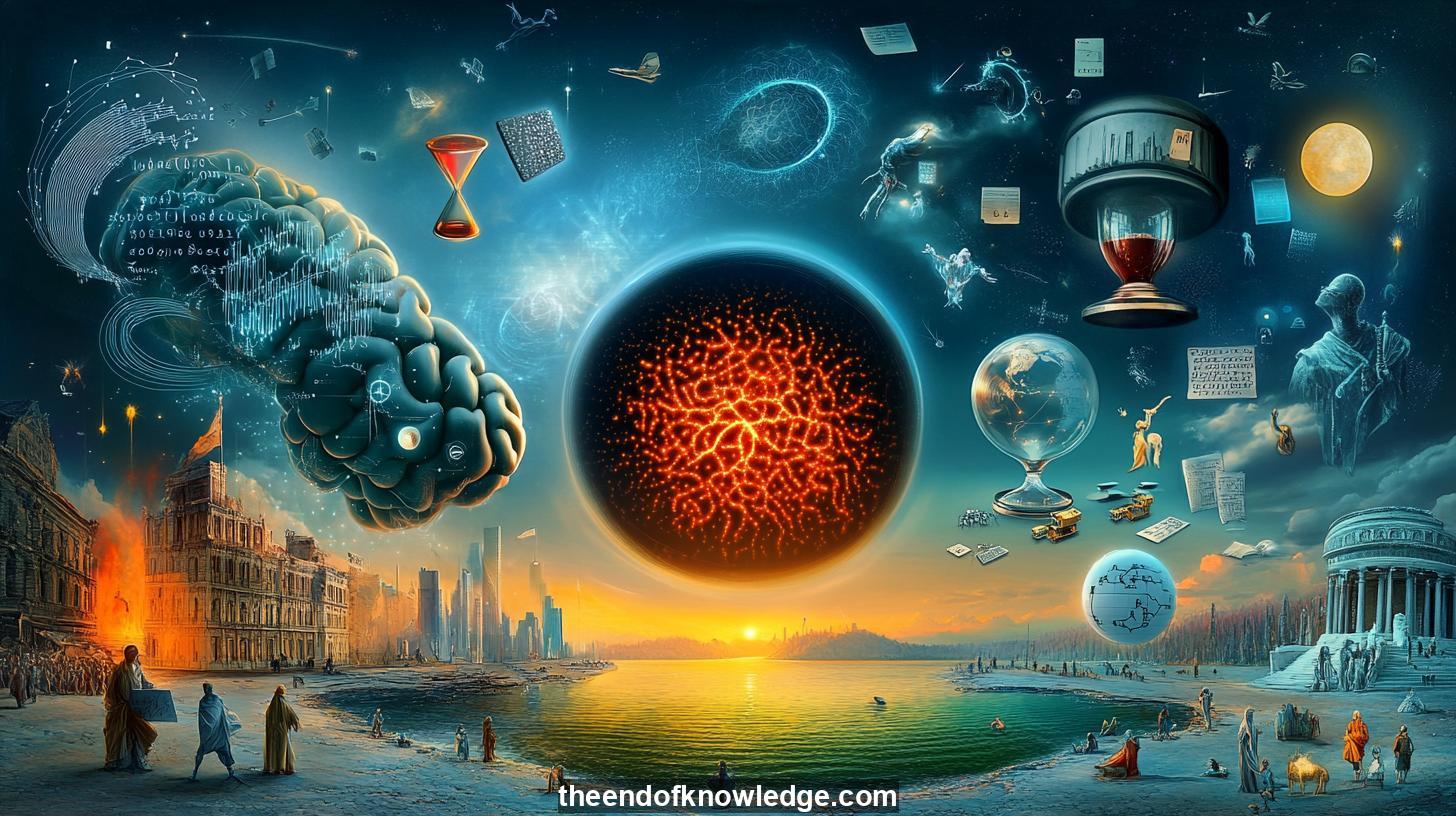 >
>
Concept Graph, Resume & KeyIdeas using DeepSeek R1 :
Resume:
discusses the concept of the singularity, particularly in the context of artificial intelligence (AI) and its potential to surpass human intelligence. The discussion highlights the exponential growth of information technology and its implications for understanding and reverse-engineering the human brain. It explores the idea that while computers may eventually have the power to simulate the human brain, the process of reverse-engineering its methods is still ongoing. also delves into the themes of technological progress, the potential for machines to become superintelligent, and the ethical and societal implications of such advancements.30 Key Ideas:
1.- The singularity refers to a hypothetical future point where AI surpasses human intelligence, leading to significant societal changes.
2.- Technological progress, particularly in computing power, is exponential, driving advancements in AI.
3.- Reverse-engineering the human brain is complex, with ongoing efforts to understand its methods.
4.- The singularity could be seen as a convergence of human and machine intelligence rather than a replacement.
5.- Emotions and consciousness are key aspects of human intelligence that are challenging to replicate in machines.
6.- The ethical implications of creating superintelligent machines are significant and require careful consideration.
7.- The motivations behind AI development, such as profit or scientific curiosity, influence its direction and outcomes.
8.- Ensuring that AI aligns with human values and goals is crucial for responsible innovation.
9.- The integration of AI into society raises questions about identity, consciousness, and the future of humanity.
10.- The concept of singularity challenges traditional views of human evolution and progress.
11.- Technological advancements in AI could lead to significant improvements in healthcare, education, and other fields.
12.- The potential for AI to surpass human intelligence raises concerns about control and accountability.
13.- The development of AI requires a multidisciplinary approach, including ethics, philosophy, and neuroscience.
14.- Understanding the neural basis of human intelligence is essential for advancing AI research.
15.- The singularity could lead to a new era of human evolution, blending biology and technology.
16.- The societal impact of AI includes changes in employment, education, and social structures.
17.- The ethical debate surrounding AI includes questions about autonomy, responsibility, and human rights.
18.- The concept of singularity is influenced by both scientific and philosophical perspectives.
19.- The integration of AI into human society requires a new cosmovision or worldview.
20.- emphasizes the need for ongoing debate and reflection on the future of AI.
21.- The potential for AI to solve complex problems, such as climate change, is significant.
22.- The development of AI raises questions about the nature of consciousness and intelligence.
23.- The singularity could lead to a redefinition of human identity and purpose.
24.- The ethical considerations of AI development include issues of privacy, security, and bias.
25.- highlights the importance of responsible innovation in AI research and development.
26.- The integration of AI into society requires careful planning and regulation.
27.- The potential for AI to enhance human capabilities is vast, but so are the risks.
28.- The concept of singularity challenges traditional views of human evolution and progress.
29.- The development of AI requires a balanced approach, considering both benefits and risks.
30.- concludes by emphasizing the need for ongoing reflection and debate on the future of AI.
Interviews by Plácido Doménech Espí & Guests - Knowledge Vault built byDavid Vivancos 2025